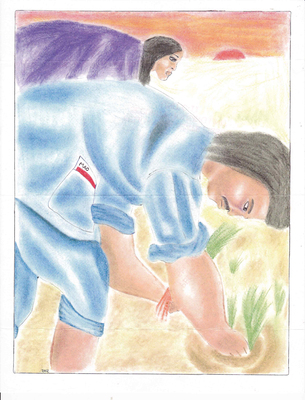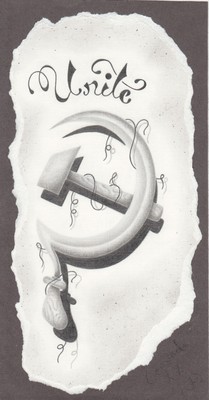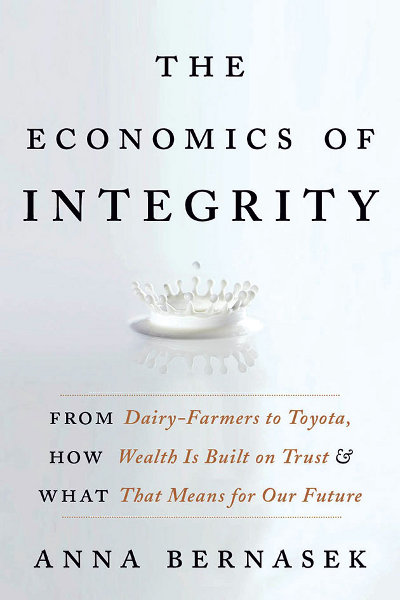
Rashid's Empty Rhetoric on the Labor Aristocracy
The Minister of Defense of the New Afrikan Black Panther Party (Prison Chapter) recently stepped in(1) to defend Turning the Tide against our USW comrade’s critiques.(2) We can appreciate the greater clarity and honesty in Rashid’s piece compared to Michael Novick’s, but still cannot forgive him for getting the first question of importance to communists wrong: who are our friends and who are our enemies? Like Jose Maria Sison and Bob Avakian, Rashid has long been exposed to MIM line and writing, and many attempts to struggle with him have been made. It does great damage to the International Communist Movement when these people become icons of “Maoism” in many peoples’ eyes, while promoting chauvinistic lines on the role of the oppressor nations under imperialism.
Rashid opens his piece with the most common strawpersyn argument of the revisionists, that the MIM line is wrong because Marx and Lenin never abandoned organizing among Europeans and Amerikans. Rashid needs to be more specific if he’s claiming there are groups that are refusing to work with white people or moving to the Third World to organize. While our work mostly targets prisoners, we target prisoners of all nationalities, and similarly our street work is not very nation-specific. The question we would ask instead of “should we organize Amerikans?”, is, “what is going to achieve communism faster, organizing rich people around demands for more money, or organizing them around ideas of collective responsibility for equal distribution of humyn needs and ecological sustainability?”
Rashid’s third paragraph includes some numbers and math and at first glance i thought it might have some concrete analysis. But alas, the numbers appear just for show as they are a) made up numbers, and b) reflecting the most simple calculation that Marx teaches us to define surplus value. To counter Rashid’s empty numbers, let us repeat our most basic math example here. If Amerikans are exploited, then to end exploitation would mean they need to get paid more money. Dividing the global GDP by the number of full-time laborers gives an equitable distribution of income of around $10,000 per persyn per year.(3) To be fair, in Rashid’s article he addresses this and quotes Marx to say that we cannot have an equitable distribution of income. In that quote from Wages, Price and Profit Marx was writing about capitalism, which is inherently exploitative. Our goal is communism, or “from each according to her ability, to each according to her need.” But we’re not there yet, Rashid might argue. OK fine, let’s take Rashid’s hypothetical McDonald’s worker making $58 per 8 hour workday. If we assume 5 days a week and 50 weeks a year we get $14,500 per year. According to the World Bank, half of the world’s people make less than $1,225 per year.(4) That report also showed that about 10% of Amerikans are in the world’s richest 1% and that almost half of the richest 1% are Amerikans. So Rashid wants to argue that under capitalism it is just that the lowest paid Amerikans earn over 10 times more than half of the world’s population because their labor is worth that much more? How is that? What Marx was talking about in Wages, Price and Profit was scientific: a strong persyn might be twice as productive as a weak one, or a specially trained persyn might add more value than an unskilled persyn. So Rashid wants to use this to justify paying anyone who was birthed as a U.$. citizen 10 to 25 times, or more, the average global rate of pay? We have no idea how Rashid justifies this disparity except through crass Amerikan chauvinism.
This empty rhetoric is not Marxism. It is ironic how today people will use this basic formulation for surplus value from Marx to claim people of such vastly different living conditions are in the same class. No one else in the world looks at the conditions in the United $tates and Haiti and thinks, “these countries should really unite to address their common plight.” It is only pseudo-Marxists and anarchists who read a little Marx who can come up with such crap.
Rashid later establishes commonality across nations with the definition, “The proletariat simply is one who must sell her labor power to survive, which is as true for the Amerikan worker as it is for one in Haiti.” We prefer Marx’s definition that the proletariat are those who have nothing to lose but their chains. According to Rashid, we should determine whether someone is exploited based on different measuring sticks depending on what country they live in. Apparently, in the United $tates you must have a $20,000 car, a $200,000 home and hand-held computers for every family member over 5 in order “to survive.” Whereas in other countries electricity and clean water are optional. More chauvinism.
Rashid continues discussing class definitions,
“For instance, if there’s no [Euro-Amerikan] (‘white’) proletariat in the US, then there’s also no New Afrikan/Black one. If a EA working in McDonalds isn’t a proletarian, then neither is one of color. If there’s no New Afrikan proletariat, then there’s no New Afrikan lumpen proletariat either (”lumpen” literally means “broken”–if they were never of the proletariat, they could not become a ‘broken’ proletariat).”
Lumpen is usually translated as “rag.” Even in the United $tates we have a population of people who live in rags, who have very little to lose. However, we completely agree with Rashid’s logic here. And that is why MIM(Prisons) started using the term “First World lumpen” to distinguish from “lumpenproletariat.” There is little connection between the lumpen in this country and a real proletariat, with the exceptions being within migrant populations and some second generation youth who form a bridge between Third World proletariat, First World semi-proletariat and First World lumpen classes. Rashid continues,
“Yet the VLA [vulgar labor aristocracy] proponents recognize New Afrikan prisoners as ‘lumpen’ who are potentially revolutionary. Which begs the question, why aren’t they doing work within the oppressed New Afrikan communities where they’re less apt to be censored, if indeed they compose a lumpen sector?”
This is directed at us, so we will answer: historical experience and limited resources. As our readers should know, we struggle to do the things we do to support prisoner education programs and organizing work. We do not have the resources right now to do any serious organizing outside of prisons. And we made the conscious decision of how we can best use our resources in no small part due to historical experience of our movement. In other words we go where there is interest in revolutionary politics. The margins, the weakest links in the system, that is where you focus your energy. Within the lumpen class, the imprisoned lumpen have a unique relationship to the system that results in a strong contradiction with that system. The imprisoned population could also be considered 100% lumpen, whereas less than 20% of the New Afrikan nation is lumpen, the rest being among various bourgeois classes, including the labor aristocracy.
“And if the lumpen can be redeemed, why not EA [Euro-Amerikan] workers?”
Again, look at history. Read J. Sakai’s Settlers and read about the Black Panther Party. Today, look at the growing prison system and the regular murder of New Afrikan and other oppressed nation youth by the pigs. Look at where the contradictions and oppression are.
We can quote Marx, Engels and Lenin on the labor aristocracy to boost our position as well. But Rashid takes an ahistorical and dogmatic reading of these authors. Engels was on the cutting edge recognizing this question in the late 1800s. Lenin witnessed the rise of the labor aristocracy in the early 1900s, and it was the Comintern under Stalin’s leadership that settled the two-line struggle over this class during WWII.(5) Meanwhile, MIM has already addressed the fact that anyone who turns to Mao to determine their class analysis of the United $tates, when Mao never did his own class analysis of the United $tates, doesn’t really understand what Mao taught us.(6)
The only really interesting thing about this piece is that Rashid has further drawn a line between the MIM camp and the slew of anarchist and crypto-Trotskyist organizations who are still confused about where wealth comes from. They think people sitting at computers typing keys are exploited, and Rashid accuses our line of requiring “surplus value falling from the sky!” We already told you where the high wages in the imperialist countries came from, Rashid, the Third World proletariat! That is why the average Amerikan makes 25 times the average humyn, and why all Amerikans are in the top 13% in income globally. As the revisionists like to remind us, wealth disparity just keeps getting greater and greater under capitalism. The labor aristocracy today is like nothing that V.I. Lenin ever could have witnessed. We must learn from the methods of Marx and Lenin, not dogmatically repeat their analysis from previous eras to appease Amerikans.
Related Articles:This article referenced in:










